Heroes of the Environment is a list published in the Time magazine. The inaugural list was published in October 2007; it contains 43 entries, individuals or groups who have contributed substantially to the preservation of the environment. The list is divided into four categories: Leaders & Visionaries, Activists, Scientists & Innovators, and Moguls & Entrepreneurs.
The first list was published with a touching introduction by Bryan Walsh, in which he explained the purpose of the list and how the list members were selected. His introduction started with these lines: “Though home to us all, the Earth is mute. It does not get a vote in any congress or parliament. It does not own blocks of shares in the market. It does not rise up at a protest rally. It cannot even buy a hybrid car. The Earth has no voice so someone must speak for it. We call the men and women on the following pages heroes as they were speakers for the planet”.
Here, we highlight the most innovative and influential names on the list:
Mohamed Nasheed
Mohamed Nasheed is a Maldivian marine scientist, environmental activist, and politician, who is one of the founders of the Maldivian Democratic Party and served as the fourth President of the Maldives, 2008-2012.
It was undoubtedly recorded that the tidal currents that swirl within the Maldives Islands regularly shift whole beaches of sand from one side of a cove to another, swallowing and spitting out coral and rock. By the end of this century, according to various scientific projections, the low-lying Maldives may slip below the waters entirely.
Since coming to power in an election that ended a three-decade-long dictatorship, Nasheed championed the fight against climate change. His tiny nation of fewer than 400,000 souls became a symbol both of what is at stake, and what we can do to change it.
Rising sea levels, the consequence of more than a century of industrial growth, may not be the Maldives’ fault, but it is the Maldives’ problem. What happens to these Islands in the coming years, experts suggest, could indicate what will happen to coastal regions across the globe: “We are on the world’s frontline in a sense; we are its only hope,” says Nasheed.
Nasheed announced that the Maldives would, within ten years, become the world’s first ever fully carbon-neutral nation with an array of eco-energy projects. Environmentalists are hailing Nasheed as a climate-change standard bearer ahead of crucial talks in Copenhagen. His words “We want to shift the global debate from apathy to action” trumpeted during the speech he delivered to the British House of Commons on 6 July 2009.
Still, Nasheed knows that the day could come when no trees or land remain. Soon after taking office, he announced a plan for a sovereign wealth fund to finance the purchase of land, perhaps in a larger country such as Australia or India, that might serve as a new home for the entire Maldivian population.
Nasheed is clearheaded about the stark reality facing small island nations in the coming century. Buying land is the Maldives’ insurance policy: “We do not want to leave,” he says, “But we do not want to see our children and grandchildren in tents as refugees either”.
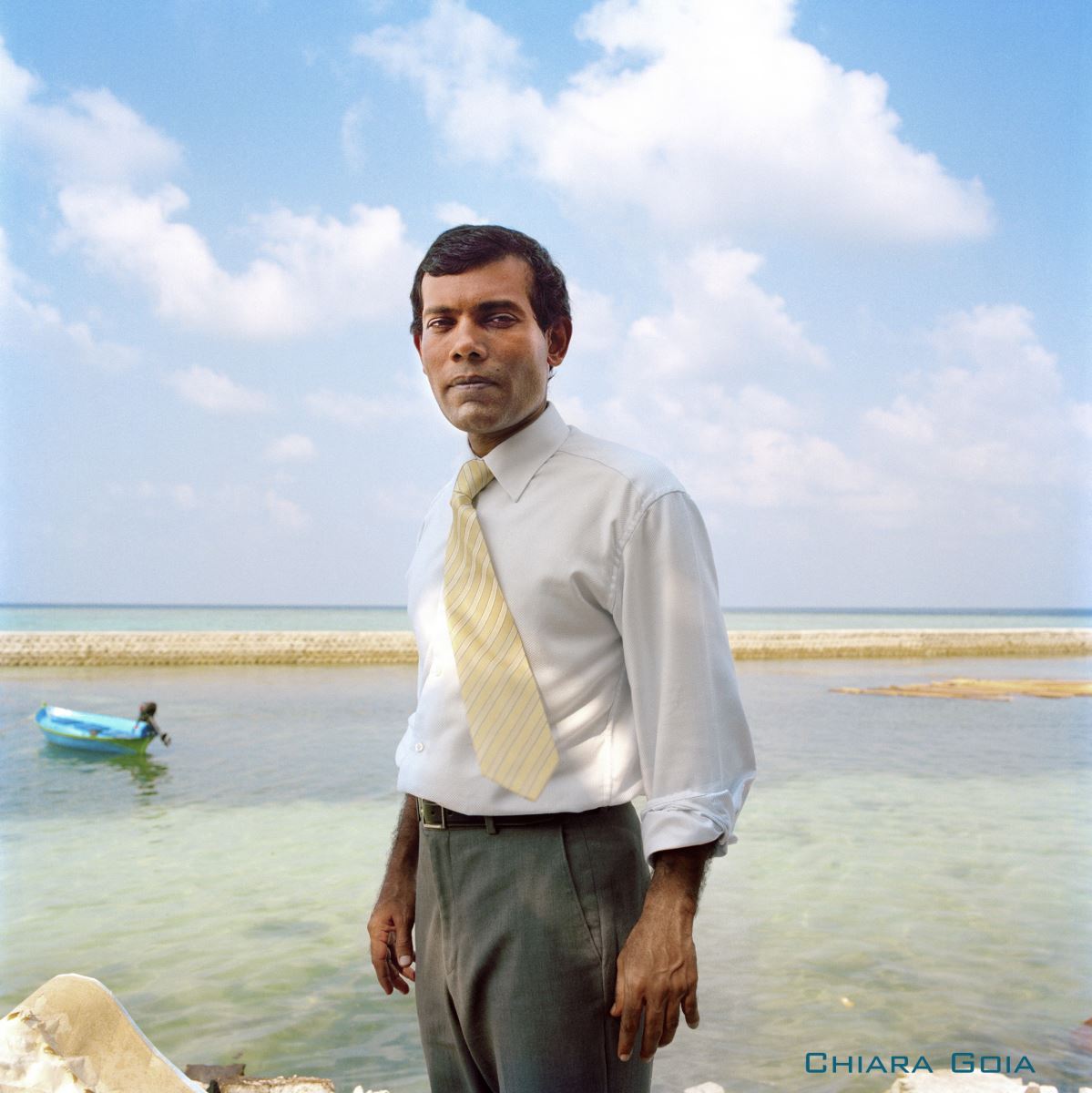
Frederic Hauge
Frederic Hauge, a Norwegian environmental activist, is head of a multi-disciplinary international environmental Non-Governmental Organization (NGO) based in Oslo, the Bellona Foundation. He co-founded the organization in 1986; his staff includes only 60 engineers and physicists.
Hauge was active in the environmental organization Natur Ogungdom as a schoolboy, and eventually dropped out of secondary school to concentrate full-time on environmental issues. In 1985, he emerged as leader of a small group of environmental activists who received broad press coverage of their nontraditional methods. Among their focus was pointing out locations where toxic industrial waste had been buried. They also fought against plans for disposal of hazardous waste from titanium mines into surface water.
Frederic Hauge and Bellona Foundation do not limit themselves to working on the local scale. In the 1990s, Bellona established a Russian branch, with a strong focus on how to deal with the large amounts of nuclear waste that had accumulated over the years. This led to several years of controversies with the Russian authorities. Alexander Nikitin, Bellona’s representative in Murmansk was arrested by the Federal Security Service and charged for treason through espionage. After several years of court processes, Nikitin was acquitted of the accusations. Hauge later described this period as the toughest fight in the history of Bellona, and with an outcome he was most proud of.
Hauge’s powerfully pragmatic approach is to collaborate with heavy industry, not battle it. Bellona aims to help oil majors such as Norway’s State Oil Hydro and Anglo-Dutch giant Shell to become greener enterprises. He does not always see eye to eye with big business, but executives at companies as these appreciate Bellona’s sound grasp of science.
Hauge is famously known for his quote “The only thing I am more afraid of than environmental threats is apathy”.
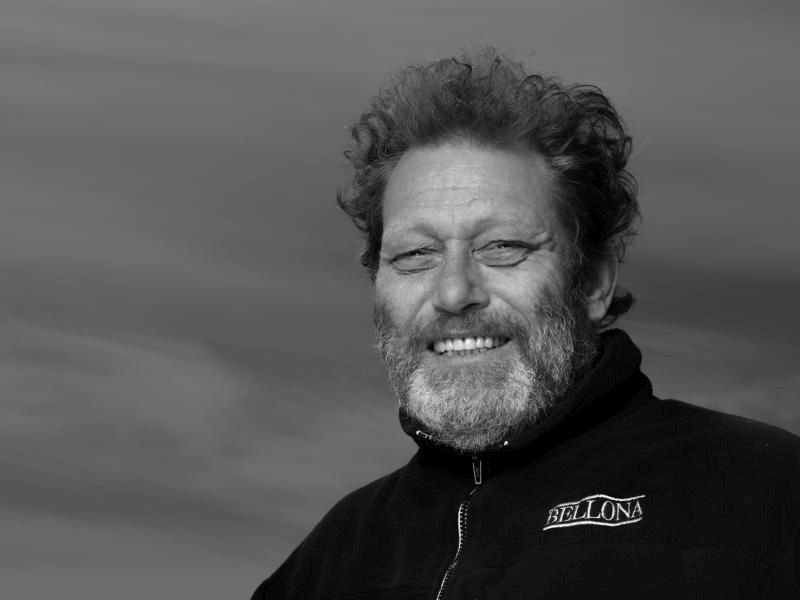
Joe Romm
Joseph Romm is an American author, blogger, physicist, and climate expert, who concentrates on methods of reducing greenhouse gas emissions and global warming, as well as increasing energy security through energy efficiency, green energy technologies, and green transportation technologies.
In 2005, Romm’s brother lost his house in Mississippi during Hurricane Katrina. This incident made climate change personal to Romm as he began an in-depth research project to determine whether his brother should rebuild there. The result was the 2006 global-warming book Hell and High Water. On the cover of his book, he wrote: “The consequences of doing nothing were far more than what people realized”.
Romm is now the author of Climate Progress, which is by far one of the most influential global warming blogs on the Internet. In his blog, he combines his scientific intellect with a strong sense of environmental and moral outrage.
Romm takes it as his life mission to make people realize that global warming is a potential human catastrophe, but that it can be fixed with today’s green technology applied relentlessly. What began as a once-a-day side job has become full time, with Romm scouring the Internet for climate studies and filtering them through his own firmly fixed values.
Unlike many climate bloggers, Romm comes at global warming not from an environmental background but from a national-security one. After graduating from Massachusetts Institute of Technology (MIT), he worked at the Rockefeller Foundation. His job in the twilight of the Cold War was to identify the world’s new big problems; as he talked to experts across the ideological spectrum, he found them: energy and climate change. He believed that these were the sleeper issues that were really going to dominate the coming decades.
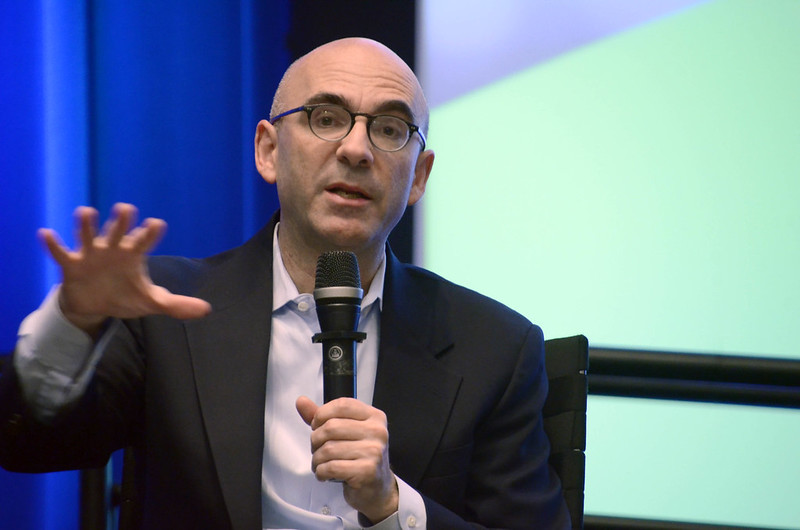
Takashi Yabe
Takashi Yabe is a Professor at the Department of Mechanical Sciences and Engineering, Tokyo Institute of Technology. His specialties are theoretical and experimental studies of interactions between laser light and substances. Today, it is valid to say that Yabe is one of the most remarkable thermal and fluid scientists and laser-fusion experts in the world.
In his research, Yabe uses a huge flat screen to help explain the tiny particles that are a major part of his work: the magnesium energy cycle and the magnesium injection cycle, or “MAGIC” as he has named it. Yabe believes that MAGIC, true to its name, could help eliminate our dependence on fossil fuels by allowing us to build a magnesium-based society in which clean energy is powered by the Sun.
The oceans contain 1,800 trillion tons of magnesium, Yabe explains, enough to meet the world’s energy needs for the next 300000 years. The metallic element with a “white-silver glitter” has never been considered a viable energy source because refining it, at temperatures up to 4000°C, requires a lot of money and energy. Since 2005, however, Yabe and his colleagues have been developing a system of lenses and lasers to harness one of the most readily available sources of energy around. “We use sunlight, and it is free”, he says.
Yabe has established a venture business named Electra to realize his dream of the “magnesium-based society” using solar-pumped laser power; he currently serves as its CEO.
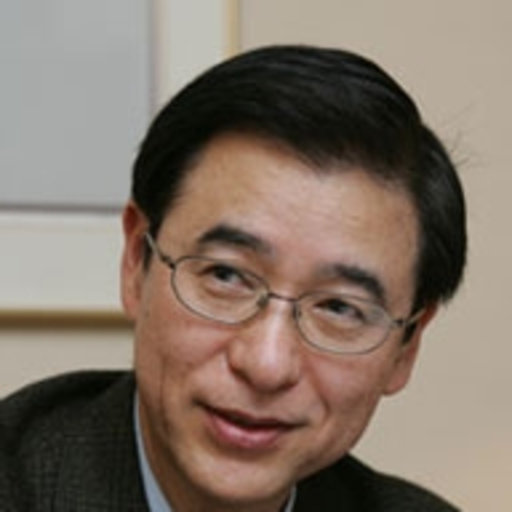
Sheri Liao
Sheri Liao is a Chinese environmental activist, journalist, and producer of documentaries, whose works are credited with advancing the Chinese Environmental Movement.
Liao founded an NGO named the Global Village of Beijing (GVB), which is now considered one of China’s earliest environmental-advocacy groups. For Sheri Liao, the solution to the problems caused by China’s breakneck modernization can be found in centuries-old wisdom in the concept of adaptation to nature. Her idea is to promote a life of harmony through reduced consumption and decreased use of harmful practices in daily lives.
In May 2008, a tragic earthquake hit China causing a death toll of nearly 90,000 people and a massive widespread destruction. Liao and a number of environmental activists spread their environmental messages to a village in southwestern China’s Sichuan Province named “Daping” that was devastated in the earthquake. They initially went to help with rescue efforts, but ended up converting the villagers to eco-friendly practices that also help fuel the bottom line.
Now organic farms churn out high-end produce for affluent consumers, and many residents live in houses that have been rebuilt using materials such as locally harvested bamboo. The idea, as Liao puts it, is to promote “a life of harmony”; an approach that preaches balance between the body and the mind, the individual and society, and people and the planet.
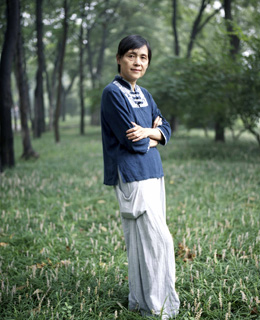
Al Gore
Albert Arnold Gore Jr., famously known as Al Gore, is an American politician, advocate, and philanthropist, who served as the 45th Vice-President of the USA. Al Gore had stumbled into the issue of global warming as a student at Harvard; he grasped the science quickly, and as his political star rose, he never relented in his determination to alert people that we are baking our planet and ourselves with our lust for fossil fuels.
More than a few ignoramuses mocked the Congressman, Senator, Vice‑President, and Presidential candidate for his scientific insight. Only after Gore left politics did he find a formula for accomplishing his life’s work, creating a global media brand around the PowerPoint presentation that became his aptly titled book and documentary An Inconvenient Truth.
Since the film’s release, An Inconvenient Truth has been credited for raising international public awareness of climate change and reenergizing the environmental movement. The documentary has also been included in science curricula in schools around the world, which has spurred some controversy. The film was awarded the Academy Award in 2006, and it has been generally well-received politically in many parts of the world and is credited for raising further awareness of global warming internationally.
Gore and The Alliance for Climate Protection created the “We Can Solve It” organization, a web-based program with multiple advertisements on television focused on spreading awareness for climate crisis and global warming and petitioning for the press putting more attention on the crisis, the government doing more to help the environment, and their ultimate goal is the end to global warming. Although focused mostly upon the USA, and Americans, it is an international petition and effort; it already has over one million signatures.
Al Gore’s film, along with its companion book, An Inconvenient Truth: The Planetary Emergency of Global Warming and What We Can Do About It, helped to bring the issues of climate change and environmentalism into the public eye. Al Gore’s film and book also helped the former Vice-President win the Nobel Peace Prize, together with the Intergovernmental Panel on Climate Change, in 2007.
In recent years, Gore has remained busy traveling the world speaking and participating in events mainly aimed towards global warming awareness and prevention. His keynote presentation on global warming has received standing ovations, and he has presented it at least 1,000 times according to his monologue in An Inconvenient Truth. Gore and his family drive hybrid vehicles to set an example for the parts of An Inconvenient Truth where he calls for people to conserve energy.
In March 2010, two non-profit organizations founded by Al Gore, The Alliance for Climate Protection and The Climate Project, joined together; and in July 2011, the combined organization was renamed the Climate Reality Project. In February 2012, the Climate Reality Project organized an expedition to the Antarctic with civic and business leaders, activists, and concerned citizens from many countries.
On the other hand, many environmental criticisms were leveled at Gore. These criticisms included that he has an alleged conflict of interest from his role as both an investor in green-technology companies and as an advocate of taxpayer-funded green-technology subsidies, he allegedly makes erroneous scientific claims, he consumes excessive amounts of energy, and he allegedly refuses to debate others on the subject of global warming.
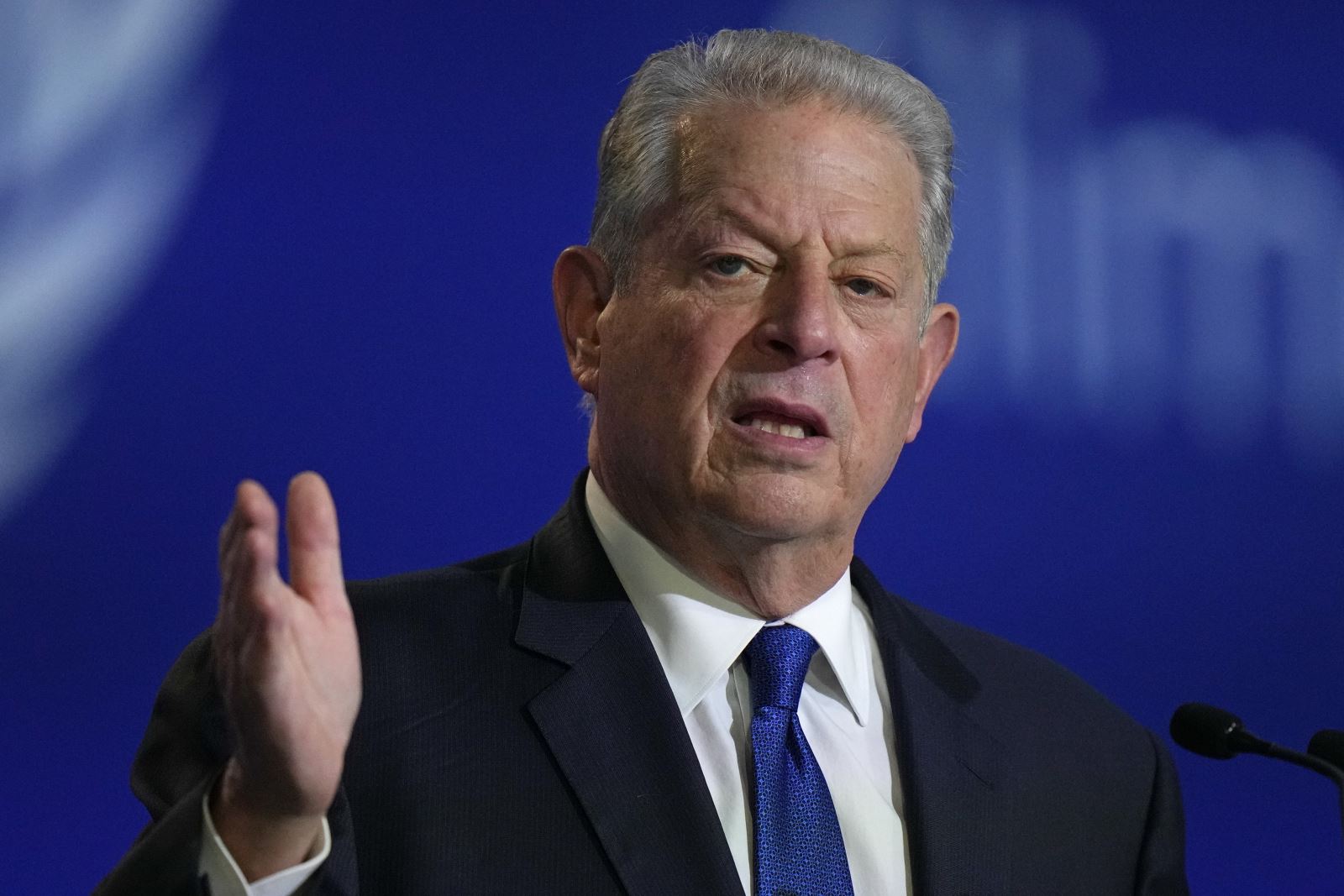
As the world approaches various thresholds of a complete environmental tragedy, and with the human population continuing to rise by 75 million or more per year, with torrid economic growth in all corners of the world, with the burdens of climate change, deforestation, pollution, greenhouse gas emissions, species extinction, ocean acidification, and other massive threats intensify, the need for such men and women to rise up and speak for the silent planet is an immediate necessity so the world may slow down and listen.
References
www.time.com
www.harrietrohmer.com